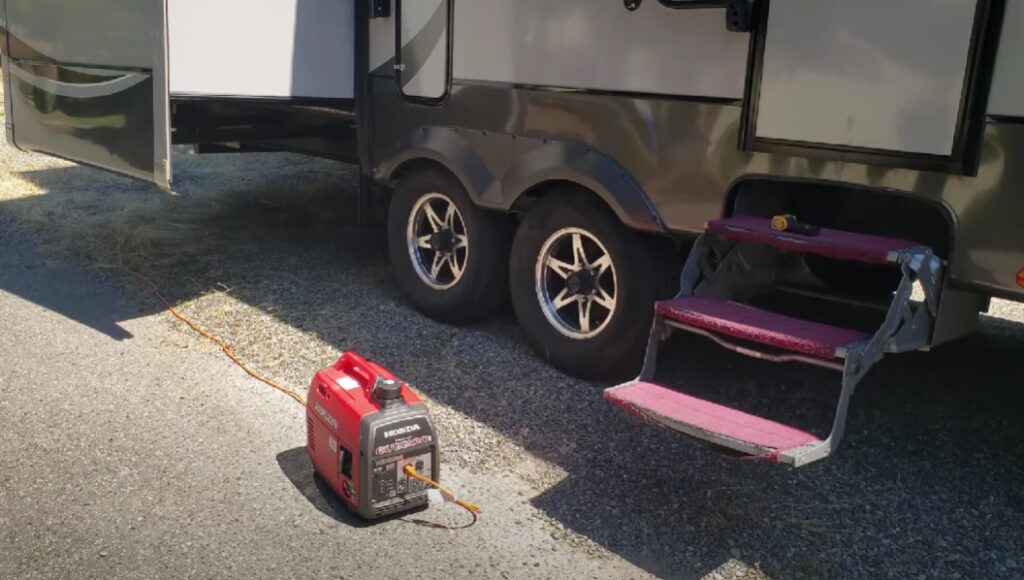An RV generator is a portable power station that supplies electricity for various appliances and systems in your recreational vehicle. Understanding the lifespan of an RV generator is crucial for planning your trips, maintaining your generator, and preventing unexpected breakdowns.
The lifespan of an RV generator varies based on factors like brand, maintenance, and usage. Generally, a well-maintained generator can endure 10 to 30 years. Regular maintenance, reputable brands, and avoiding constant operation at maximum load can contribute to longevity.
Factors Affecting the Lifespan of an RV Generator
The lifespan of an RV generator can be influenced by various factors:
- Quality of the generator: High-quality generators are built to last and have longer lifespans.
- Frequency of use: Generators used frequently may wear out sooner than infrequently.
- Maintenance practices: Regular maintenance can significantly increase the lifespan of a generator.
- Environmental conditions: Harsh weather and poor storage can reduce a generator’s lifespan.
- Type of fuel used: Different fuels impact a generator’s lifespan, and using the right fuel for your generator is crucial.

Average Lifespan of RV Generators
Depending on the fuel they use, RV generators have different average lifespans:
- Gasoline generators typically last between 1,000 to 1,500 hours with proper maintenance.
- Propane generators: They usually have a lifespan of about 1,500 to 2,000 hours.
- Diesel generators are the most durable, lasting up to 20,000 to 30,000 hours if maintained correctly.
Understanding Generator Hours
Generator hours refer to the total time a generator has run since its first use. This number has a direct impact on the lifespan of your generator. Keeping track of your generator hours can help you plan necessary maintenance and assess when it might be time for a replacement.
Importance of Regular Maintenance
Regular maintenance is the key to extending the life of your RV generator. Here are some recommended maintenance practices:
- Regular oil and filter changes: This is one of a generator’s most critical maintenance tasks. It helps to keep the engine running smoothly and prolongs its life.
- Regular inspections for any damage: Inspecting your generator for any signs of wear, tear, or damage can help you catch issues early and prevent bigger problems.
- Properly storing the generator when not in use: If you’re not using it, it’s important to store it correctly to prevent environmental damage.
Using the correct fuel and oil is also crucial. Incorrect fuel can cause serious damage to your generator and reduce its lifespan.
When to Replace Your RV Generator?
Some signs your generator might need replacing include persistent mechanical issues, reduced power output, and excessive fuel consumption. You’ll need to weigh the costs and benefits of replacing versus repairing.
When choosing a new generator, consider factors like your power needs, the fuel you prefer, and the generator’s noise level.
Conclusion
Taking care of an RV generator involves understanding its lifespan, practicing regular maintenance, and knowing when to replace it. It’s crucial to ensure you have a reliable power source for all your adventures.
Related Post:
- Best Quiet Dual Fuel Generator (Under 70 dBA)
- 5 Best Propane Generators for House (Compact & Easy Handling)
- Oil Filter for Generac Generator (Detailed Guide)
Recent Posts
Yes, synthetic oil can generally be used in generators. It offers superior lubrication, improved resistance to temperature variations, and longevity compared to conventional oil, which can enhance...
In today's digital age, our dependency on computers and other electronic devices is undeniable. But what happens when a power outage occurs? This is where generators come in. However, is it safe to...
